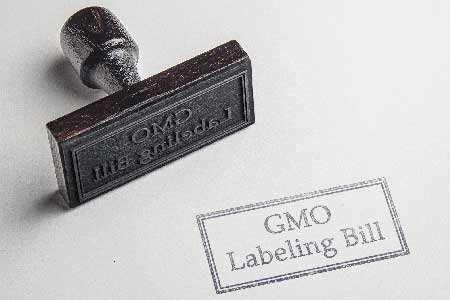Last week, Senator Pat Roberts (R-Kansas) introduced a draft bill requiring the Agriculture Secretary to put in place a national voluntary labeling standard for foods manufactured with genetically modified organisms (GMOs). In essence, this law would block states from requiring labels on foods containing GMOs. But consumer groups are pushing back, saying that such legislation “lets big food profit by misleading consumers.”
Roberts’ bill is supported by such organizations as the Grocery Manufacturers Association and the Food Marketing Institute, all of whom believe that GMOs are safe. What the bill would achieve is a national food labeling solution that will prevent food prices from skyrocketing. Vermont already has its own food labeling law set to go into effect on July 1, 2016. According to an industry-funded study released this week by the Corn Refiners Association, Vermont’s law could increase the price of groceries by nearly $1,050 per year. Consumer groups call this an attempt to scare consumers.
Consumer advocates do not believe there is sufficient data available to deem GMOs completely safe for consumption. What they want are mandatory GMO labels on food packaging, which they believe will help consumers to make more informed choices when it comes to eating genetically engineered foods. Andrew Kimbrell, the Center for Food Safety’s executive director says, “Campbell’s Soup has announced it will label all of its [GMO] products at no added cost to the consumer. If a company like Campbell’s can take this step to label their food accurately, then there is no reason the rest of the industry can’t follow suit.“
The legislation in the Senate is similar to the Safe and Accurate Food Labeling Act of 2015 that passed the House in June. The Senate Agricultural Committee is scheduled to vote on this new proposed legislation Thursday.
To this end, this session “Labeling of GMO’s in the USA” with expert speaker Norma Skolnik, who has over 35 years of regulatory experience working with the pharmaceutical and dietary supplement industries, will offer an overview of the status of GMO’s in the U.S. and how they are regulated by the FDA. She will also discuss the FDA’s Biotechnology Policy and Biotechnology Consultation program and GMO labeling trends/regulations around the world. Further, the session will refer to all FDA regulations and policies regarding GMOs as well as proposed state and consumer GMO labeling initiatives. This is a must-attend session for food safety professionals and people in the food industry.


